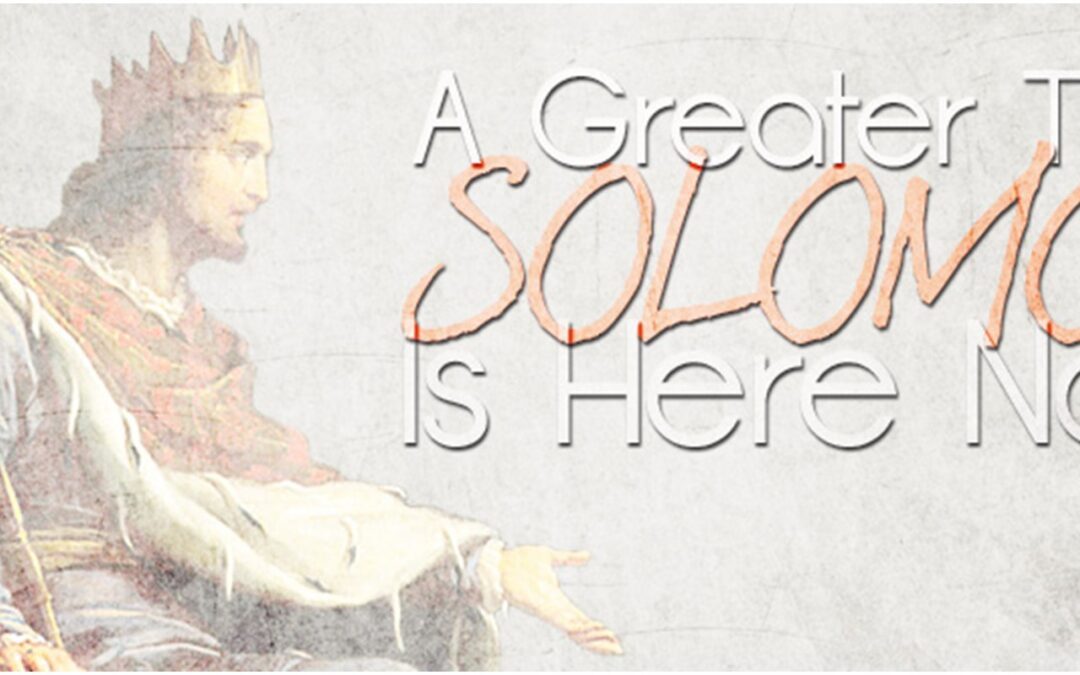KJV And all Israel heard of the judgment which the king had judged, and they feared the king; for they saw that the wisdom of God was in him. 1Kings 3:28
NASB When all Israel heard of the judgment which the king had handed down, they feared the king, for they saw that the wisdom of God was in him to administer justice. 1Kings 3:28
Author: Dr. A.J Higgins
The challenge from God, “Ask what I shall give thee,” was answered by Solomon with his request for a wise and understanding heart. God graciously answered him by acquiescing and giving him wisdom which made him renowned throughout all the countries. But what is then presented as an illustration of his wisdom is a judgment made between two harlots and the remaining living child. The details of this incident are well known.
We might have expected some dramatic international crisis to be the stage upon which Solomon’s wisdom would first be displayed. God saw to it that it would be wisdom serving the needs of a harlot and her son. The Lord Jesus, likewise, began to display His glory and might at a wedding in the obscure Cana of Galilee, not in the temple or other environs of Jerusalem, the “big city.” On a practical level, this reminds us that any gift given by God is meant to be used to serve even the humblest of God’s people or the most seemingly “minor” of needs.
Although there is a reminder of Christ at Cana of Galilee in the incident of the harlots, there are also contrasts worthy of note. As always, however great the man, and however great he may appear at his greatest moment, all must pale before the brilliance of the noonday Sun of Righteousness.

Consider first that Solomon had to ask for wisdom, whereas Christ is the embodiment of all wisdom. He is the “wisdom of God” (1 Corinthians 1:24), and “in Him are hid all treasures of wisdom and knowledge” (Colossians 2:3). Although Solomon’s choice was an excellent one, Christ’s inherent wisdom was more excellent. Christ never needed to ask for wisdom or understanding. Even as a boy of twelve, they marvelled at His understanding and answers (Luke 2:47).
Solomon could make a wise decision between harlots, but when they left his presence, they were still harlots. How different with the Lord Jesus! When harlots were in the presence of Christ, He could change them entirely, and they left a different way. “Neither do I condemn thee. Go and sin no more” (John 8:11)! And what of the woman at the well whose life history read as a tragic soap opera story? She left a different woman entirely.
Lastly, Solomon was praised and held in awe because he knew to whom to award the living child and to whom the dead infant belonged. The Lord Jesus could take the dead child and return it to life! He did so with Jairus’ daughter and with the widow of Nain’s son. A boy at the point of death, He could return alive and healthy to his father (John 4). None of this is meant to demean Solomon. We still stand in awe at his wisdom. But we worship at the greatness of our Redeemer.
Consider
Notice how Matthew 12 contrasts Solomon and Christ, not at Solomon’s weak points, but at his most valued – his wisdom. What does this suggest to you about how the Spirit of God wants us to appreciate the types and shadows of the Old Testament?

